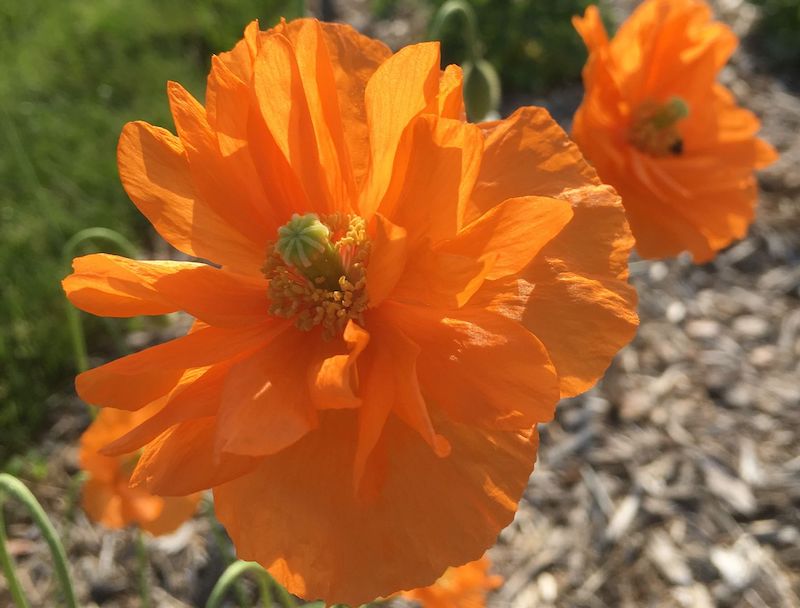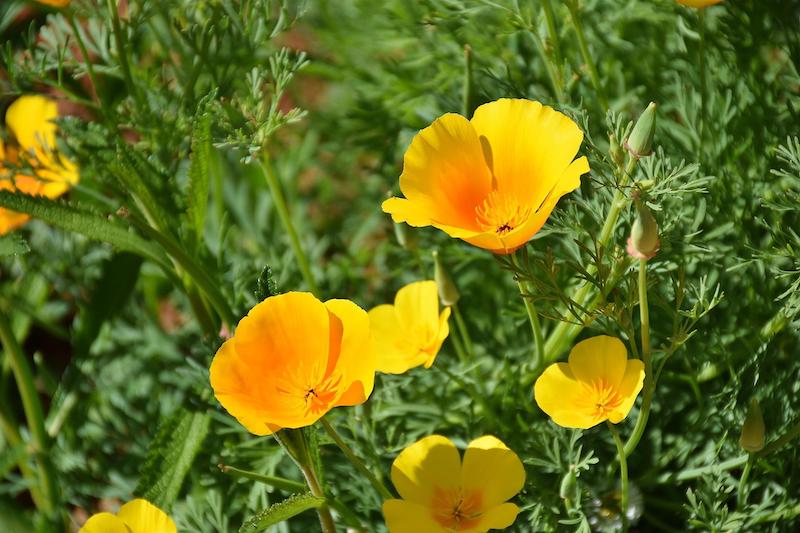Poppies can be an intimidating plant to grow. Their delicate appearance makes it hard to believe how little care they need to thrive. Poppies will bloom profusely in poor soil. Poppies are great for naturalizing in challenging spots with full sun, and will self-seed readily in empty lots or recently cleared construction sites with absolutely no preparation or soil amendments. In the home garden, even more demanding perennial Poppies prefer lean soil with excellent drainage.

How to Fertilize Poppies
Poppies prefer soil with a pH as close to neutral as possible. Applying lime to an acidic soil in the fall is the best way to keep soil more neutral. Applications of lime take time to absorb into the soil and cause a change. That is why fall is the best time to apply lime. The moisture of the winter will help lime break down into the soil. Always follow the manufacturer’s recommendation on the package. Apply a slow-release, granular fertilizer to perennial Poppies in the early spring as the new growth emerges. A formulation that promotes blooming and root formation will help support profuse blooming without too much foliage growth.

Best Time To Fertilize Poppies
Annual Poppies rarely require supplemental fertilizers, but after 2-3 years in the ground, the perennial types may benefit from a boost early in the spring. Apply a slow-release fertilizer to the soil around the root zone. The slow-release feed will last as long as the plants are actively growing and still allow for the Poppies to go dormant later in the summer.
Best Fertilizer For Poppies
Slow-release fertilizers that have a higher P (phosphorous) and K (potassium) content will support flower growth and healthy root development. Often these blends are marketed as blooming and rooting formulas, or rose and bulb fertilizers. Any of them will work. Products with a lower NPK ratio will provide the nutrients at a more “gentle” rate that the Poppies will appreciate. Brands to look for are Dr. Earth, Alaska Fish fertilizer, and Espoma Rose Tone.
Poppy Fertilizing Tips
- Annual Poppies rarely need additional feeding
- Perennial Poppies may benefit from feeding after 3-4 years
- A slow-release, granular fertilizer applied once will last all season
- Use a formulation with higher P and K numbers to improve the flowering and root development
Warnings
-Always wear protective gloves and a face mask when handling chemical fertilizers.
-Closely follow all directions and storage guidelines that are on the fertilizer label.
 |
Author Robbin Small - Published 7-26-2022 |
